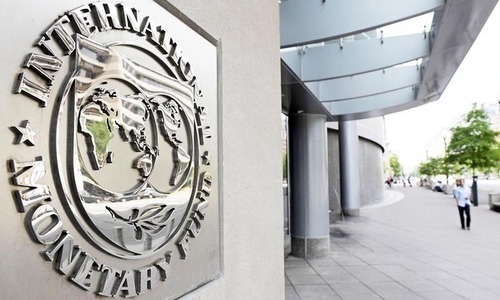
HISTORICALLY, Pakistan’s private sector, projecting a neutral image, preferred to watch electoral politics from a safe distance. This is not the case anymore.
In these changing times, as the country prepares for general elections next week, the business class, much like other segments of society, is engaged in the process.
“From calling democracy ‘a farce’ and politicians ‘a bunch of hooligans’ in early 1980s, the business class of Pakistan has come a long way. Today they are keen to cultivate friendships in political circles and are investing in research to effectively partake in national economic policymaking.
“It is not surprising (the business class’) work on economic strategy is referenced in shaping the economic content of mainstream political parties’ election agendas,” commented a star member of the community who served on the economic advisory board for the past two governments.
“The difference between military and elected governments, for the business class, was the longer continuity of relevant decision-makers and policies under military governments, which is a plus for business planning”, Salim Raza, founding CEO of the Pakistan Business Council (PBC) and former governor of the State Bank, elaborated.
“But democracy can deliver the same, provided institutions are empowered. However, if policymaking is captured by short-term political objectives, businesses face disruptions,” he added.
The deep-seated culture of patronage thriving on personal relationships demands a closer nexus between businessmen and politicians. Background research revealed that the business elite fund electioneering in return for a voice in legislature and other policymaking forums.
Talking about his friend who was a former member of the National Assembly, a businessman from Lahore said, “It was through him that I got whatever little access I had in Islamabad. Supporting him financially is a good bargain for the future of my group.”
In the absence of guidelines on corporate political funding, companies in commercial and industrial hubs raise money collectively and disburse it quietly through middlemen amongst major parties on the basis of deals cut.
“It is better to keep such dealings under the radar. Our experience of 30 years has taught us that aligning openly with one party can backfire. So now we let our association deal on our behalf with all parties and candidates who seek our help,” a veteran of the community in Karachi told Dawn.
Pakistani businessmen also extend support to candidates belonging to their ethnic, linguistic or religious community, irrespective of the party. While there might be a few who help aspiring politicians on ideological grounds; the majority, however, set aside some cash for anyone who knocks on their door close to elections.
“Where do you think all this electioneering money is coming from? Do you think all candidates have pockets that deep? I can bet a portion of this budget is provided by the business elite, loaded with more wealth than is legitimately justifiable,” commented an observer.
Instead of siding with the most business-friendly party, the business community has been interacting with the leadership of all major political parties. Key business forums hosted the political hierarchy in the pre-election phase to get a sense of their orientation and cultivate them in their interest.
The PBC launched a “100 Days Economic Agenda” to guide the next government to keep “Pakistan on a sustainable growth trajectory” after assuming power.
Emphasising on government policies that helped businesses create jobs, enhance exports and substitute imports, it calls for: “energy at regionally competitive costs; realistic exchange rates; smartly negotiated (or re-negotiated) trade agreements; level playing field with the informal sector...”
On the external front it said: “Painful, as it may be, an IMF programme is unavoidable.” The comprehensive paper also demanded “full transparency on costs, benefits and financial flows of CPEC and measures to promote investment in SEZ’s without undermining existing industry.”
The old guards (second-generation businessmen), however, are still clinging to an archaic mindset. Condemning democracy they glorify dictatorial regimes.
“I never heard my father ever talk politics. His focus was on business and his hard work paid off. He used to have key balance sheet data on his finger tips. He knew all tiers of management and many workers by name. All my life I tried to follow in his footsteps but the next generation is different.
“They rely on the executive class too much, forgetting that it has no direct stake in the company. Perhaps times are different. I am proud of my boys but they are too bold for me”, a senior businessman said, dodging questions on the role of the business class in a nascent democracy.
Majyd Aziz Balagamwala, president of the Employers Federation of Pakistan, was apprehensive. “My class does not enjoy the luxury of living in a fantasy world. We believe in adjustments as the show must go on,” he remarked on the transforming nature of the business class.
Published in Dawn, The Business and Finance Weekly, July 16th, 2018














































Dear visitor, the comments section is undergoing an overhaul and will return soon.